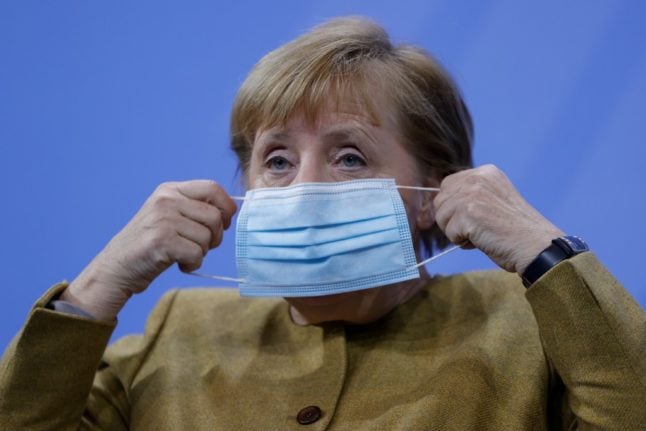The drastic measures hitting shops other than those selling essential goods would be imposed from Wednesday until at least January 10, according to a draft by Merkel's office seen by AFP.
Schools could also be shuttered, sending pupils into homeschooling, while companies are requested to allow employees to work from home during the period.
Bavaria state premier Markus Soeder, who has been pushing for tougher measures, voiced support for the measures.
“The numbers are worse than ever, we mustn't allow ourselves to get bogged down by individual measures,” he told Welt am Sonntag newspaper.
Along with Merkel, Soeder has for weeks been seeking tougher restrictions, warning that the current round of shutdowns hitting theatres, cinemas, gyms and indoor dining was not far-reaching enough.
But the implementation of the restrictions are in the hands of individual states, and some regions where infection levels were lower had been resistant to impose tough curbs.
The mood however tipped over in the last week after Germany recorded new daily death tolls reaching close to 600.
The country's disease control agency chief Lothar Wieler warned on Thursday that the infections trend had taken a worrying turn.
“The rise in numbers is worrying,” said Robert Koch Institute president Wieler, warning that after plateauing for a few weeks, “the course of infections could tip over again” into exponential growth.
READ ALSO: Fact check: Just how bad is the current coronavirus situation in Germany?
'Last Christmas?'
Germany has imposed far less stringent shutdown rules than other major European nations after coming through the first wave of the pandemic relatively unscathed.
But Europe's biggest economy has been severely hit by a second wave with daily new infections more than three times that of the peak in the spring.
Germany recorded another 20,200 new Covid cases over the past 24 hours, reaching a total of 1,320,716 cases, according to RKI data published on Sunday.
Another 321 patients died from the disease from a day earlier, bringing the total death toll to 21,787.
In a hard-hitting speech before the Bundestag on Wednesday, Merkel issued a stark warning to Germans ahead of the Christmas holiday season when families are expected to gather.
“If we have too many contacts before Christmas and it ends up being the last Christmas with the grandparents, then we'd really have failed,” she said.
Merkel's government has repeatedly said that numbers need to be brought down to 50 per 100,000 people but the rate is currently 169.1 per 100,000.
Ahead of the talks, Germany's hardest hit states have already ordered new measures.
Saxony state, where in some areas incidence rates have hit 500 per 100,000, will keep shops and schools shut from Monday. A curfew will also kick in from 10pm to 6am.
READ ALSO: These maps will help you understand the current state of the pandemic in Germany



 Please whitelist us to continue reading.
Please whitelist us to continue reading.
Member comments